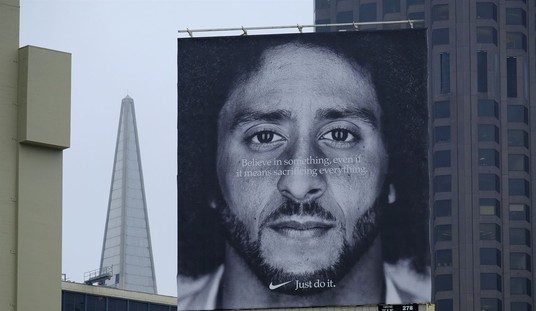Let’s see if this sounds familiar. A federal agency with national-security responsibilities wants access to a vast database that tracks the actions of citizens, but promises only to use it when they really really really think they need to do so. Even though it intrudes on privacy and collects data without warrants, the agency swears it will be necessary to keep Americans safe.
The NSA and phone data? Well, sure, but now we have the DHS asking to track our license plates, too. What could go wrong … Winston?
The Department of Homeland Security wants a private company to provide a national license-plate tracking system that would give the agency access to vast amounts of information from commercial and law enforcement tag readers, according to a government proposal that does not specify what privacy safeguards would be put in place.
The national license-plate recognition database, which would draw data from readers that scan the tags of every vehicle crossing their paths, would help catch fugitive illegal immigrants, according to a DHS solicitation. But the database could easily contain more than 1 billion records and could be shared with other law enforcement agencies, raising concerns that the movements of ordinary citizens who are under no criminal suspicion could be scrutinized.
A spokeswoman for DHS’s Immigration and Customs Enforcement agency (ICE) stressed that the database “could only be accessed in conjunction with ongoing criminal investigations or to locate wanted individuals.”
A few years ago, I would have accepted that. Today, I’m not as sanguine. Would that require a warrant? Who gets to access the data, which would be collected and stored by a private company? What constitutes a threat to public safety that would justify the mass collection of data on all Americans just to provide data-mining capabilities to DHS?
The Electronic Frontier Foundation raises the obvious point:
But civil liberties groups are not assuaged. “Ultimately, you’re creating a national database of location information,” said Jennifer Lynch, a staff attorney with the Electronic Frontier Foundation. “When all that data is compiled and aggregated, you can track somebody as they’re going through their life.”
It’s the same as strapping a GPS locator on every vehicle in America and collecting the route information from it in perpetuity. Sure, this would help solve a few crimes, and maybe find illegal aliens, which is the reason why DHS asked for this in the first place. But it also gives government a powerful store of information about everyone else. Perhaps at some point, DHS might want to look at the movement of a critic or a potential whistleblower to see whether there’s anything embarrassing in their routine, as a means of applying pressure. Those trips to the mistress’ house would just remain our little secret, comrade … as long as you keep ours, no?
Paranoid? Yes, probably, and I’m being deliberately hyperbolic — to make a point. Why put that tool in the hands of government at all, especially one that seems to have grown increasingly in love with its own unilateral power, even where it lacks authority? At this point, we should be looking for options at limiting executive-branch power rather than expanding opportunities for its abuse.








Join the conversation as a VIP Member